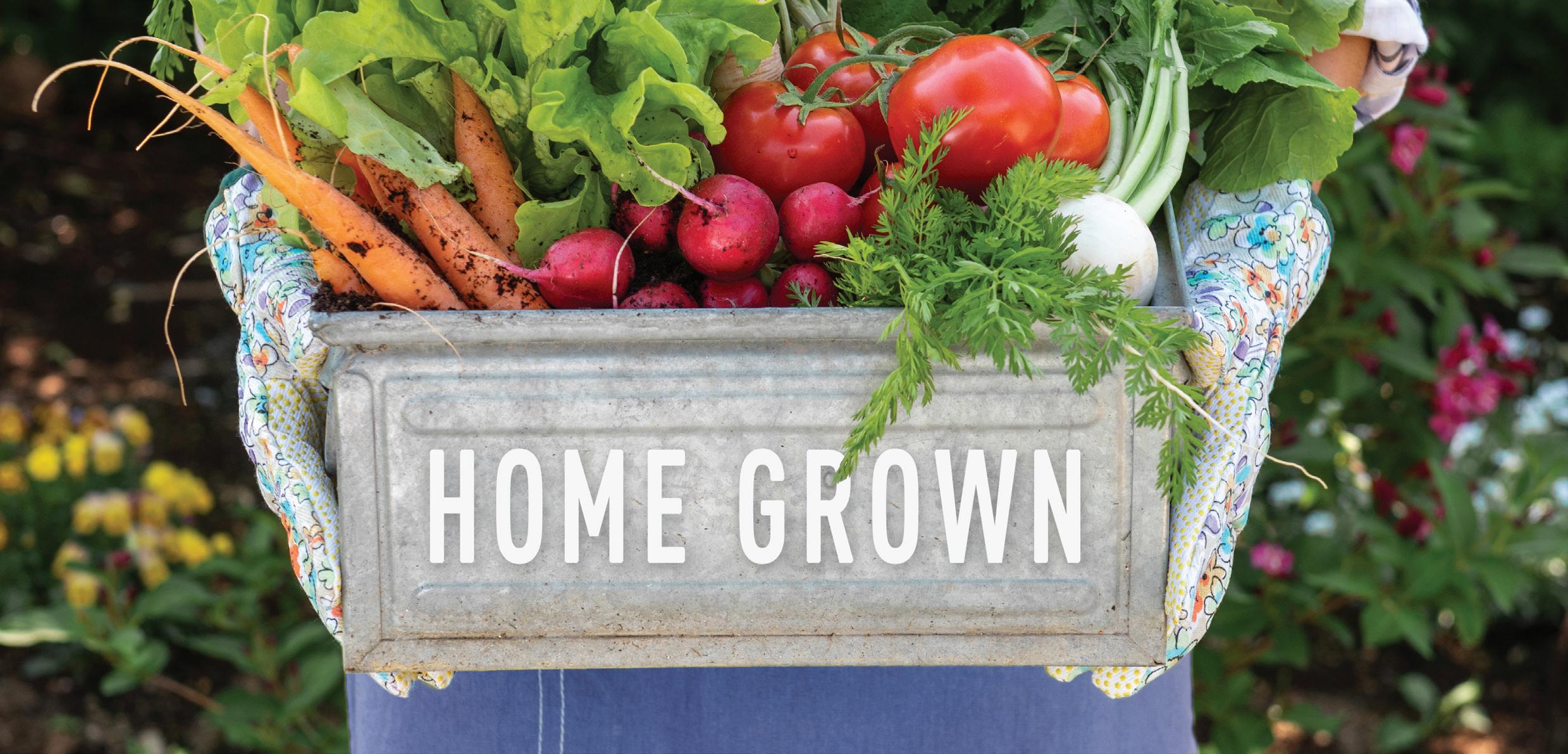
2 minute read
HOME GROWN
A simple guide to eating fresh and local
BY AUDREY ASHE
t’s no secret that modern food culture has made a decisive shift toward favoring whole, organic fresh foods over processed food. My mother was ahead of the curve on this. As a kid in the 90s, it was impossible to negotiate lunchtime trades of raw veggies and sandwiches made with whole wheat bread for my classmates’ popular pre-packaged offerings.
As we make strides in supporting more sustainable, ethical food choices, we’re also becoming more aware of the benefits of eating local. The locavore movement not only helps support local economies, but it’s also a greener alternative because you aren’t expending as much energy on food processing, distribution, and storage.

Here are a few steps you can take to start on your path to eating local and loving it.
BECOME A CSA MEMBER
If you’re eager to dive headfirst into becoming a locavore, look for a CSA (community-supported agriculture) farm in your area. CSA farms sell mixed boxes of in-season vegetables and fruits grown in their fields directly to the consumer. They’re a great way to get more fresh produce into your diet and may even challenge you to branch out and cook with ingredients you may not normally consider. Romanesco, anyone?
Each CSA is different, so do some research to find one that best fits your needs. Most require committing to an annual membership where you purchase a “share” from the farm and then receive fresh produce weekly throughout the growing season. Some may allow you to choose the seasonal items that go into your box — market-style — while others stick to a predefined assortment. In addition to produce CSAs, you can find meat and dairy CSAs. Some CSAs offer a combination.
LOVE YOUR LOCAL FARMERS MARKET
For a more hands-on approach, you can never go wrong with a good farmers market. Mealtimes are said to revolve around family, community, and connection. Opening this up to the way you shop for food will fill not only your stomach but also your soul. And you get the wonderful bonus of produce, meat, and dairy products that are fresher than what you usually find at the supermarket.
Depending on what you’re looking for, the best times to go to farmers markets are early when they open or within an hour or so of closing. For the best selection and comeliest produce, getting there first thing has its advantages. If it’s a deal you’re looking for — some vendors may sell the last of their produce at a discount at the end of the day rather than take it back with them.
If you have little time to prepare homemade meals made from fresh ingredients from a CSA or farmers market, check out local food magazines and blogs for places that use locally sourced ingredients. Many restaurants, co-ops, local food festivals, and limitedtime popups tout their locally sourced ingredients. Not only will you find some delectable and tasty fare, but most places are more than happy to provide information about the farms they partner with.







